Insights and News on Criminal Law

Understand the legal difference between illegal detention and kidnapping. Penalties, defenses, and when to contact a criminal lawyer.

What is a money mule? Learn about penalties of up to 6 years in prison under Spanish law, Supreme Court case law, and possible legal defenses.

Need a 24 hour lawyer near me? Get immediate legal defense from experienced criminal lawyers available 24/7.

Learn about the pre-trial investigation proceedings of the Public Prosecutor’s Office, their function, the rights of the suspect, and legal limitations.

Jorge Agüero shares his vision on the future of the legal profession and legal entrepreneurship at Emprende con Causa. A boost for young lawyers.

Learn how the European Arrest Warrant (EAW) works, how it differs from extradition, key deadlines, detainee rights, and when a euroorder can be refused.

Successful defense case achieving expulsion instead of imprisonment in a serious drug trafficking prosecution in Spain.

Analysis of victim's self-responsibility and objective attribution in homicide (Commentary on STS 876/2025).

Legal framework of AML: due diligence levels, beneficial ownership and key risks for regulatory and criminal exposure

Jorge Agüero, Managing Partner at Fukuro Legal, joins the 2025 PILnet Global Forum in Rome to discuss the emotional and ethical challenges of pro bono work

The obligation of precise imputation in the conversion order of the abbreviated procedure: Ensuring legitimate prosecution rights (STS 774/2025)

Reckless money laundering under Article 301.3 PC: elements, gross negligence, case law, and defense strategies. Expert criminal law analysis.

Analysis of how the CJEU redefined cross-border criminal evidence, prosecutorial independence, and the right to defence in EU judicial cooperation.

The Spanish Jury Court enables citizen participation in serious crimes, assessing facts while the presiding judge handles law and sentencing.

On 5 Sept, we attended a preliminary hearing under Act 1/2025, resolving procedural issues before trial, similar to civil pre-trial hearings.

Supreme Court 737/2018 clarifies how corporate compliance programs affect civil liability for crimes, shaping corporate criminal law.

FukuroLegal secures dismissal of client’s case due to statute of limitations after 10 years of inactivity, reinforcing criminal prescription rights.

2025 wildfires spark debate on whether public authorities can face criminal liability for failing to fulfill statutory prevention duties.

OL 1/2025 introduces restorative justice in criminal law: voluntary, confidential, free, allowing resolution or dismissal by party agreement.
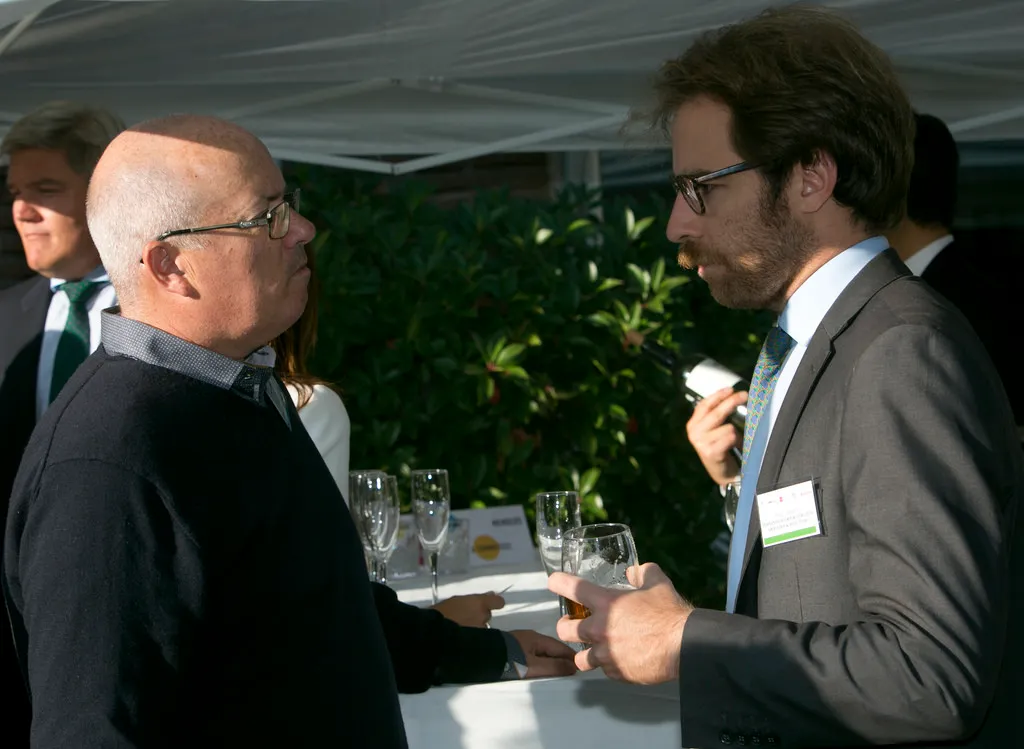
Selecting a criminal lawyer is crucial; consider experience, reputation, local knowledge, skills, language, costs, and personal compatibility

STS 172/2022 annuls a physiotherapist’s sexual abuse conviction, as sole victim testimony lacked corroboration, violating presumption of innocence.

On 17 Oct 2025, Jorge Agüero Lafora will speak at Abu Dhabi’s Litigation & Arbitration Conference on cross-border evidentiary challenges

Generative AI transforms sectors like education, art, and medicine but enables misuse, notably deepfakes, enabling realistic identity manipulation.

STS 136/2022 annuls the acquittal of a youth camp supervisor for sexual abuse, addressing appellate overreach in reassessing personal evidence.

The presumption of innocence (Art. 24.2 Spanish Constitution) ensures convictions rely on sufficient evidence, safeguards, and independent judicial review.

STS 402/2025 annuls a 1995 conviction for violent robbery, rape, and unlawful detention, granting acquittal due to new evidence raising reasonable doubt.

STS 237/2025 resolves cassation appeal on acquittal in Cuenca; debtor hid and damaged a tractor under judicial seizure for fraudulent insolvency

Art. 20.4 CP requires rationality in self-defense; the Torrejón case shows intensive and extensive excess, excluding the defense exemption.

Criminal Court No. 6 of Almería acquitted our German clients of attempted theft, confirming procedural violations and reaffirming presumption of innocence.
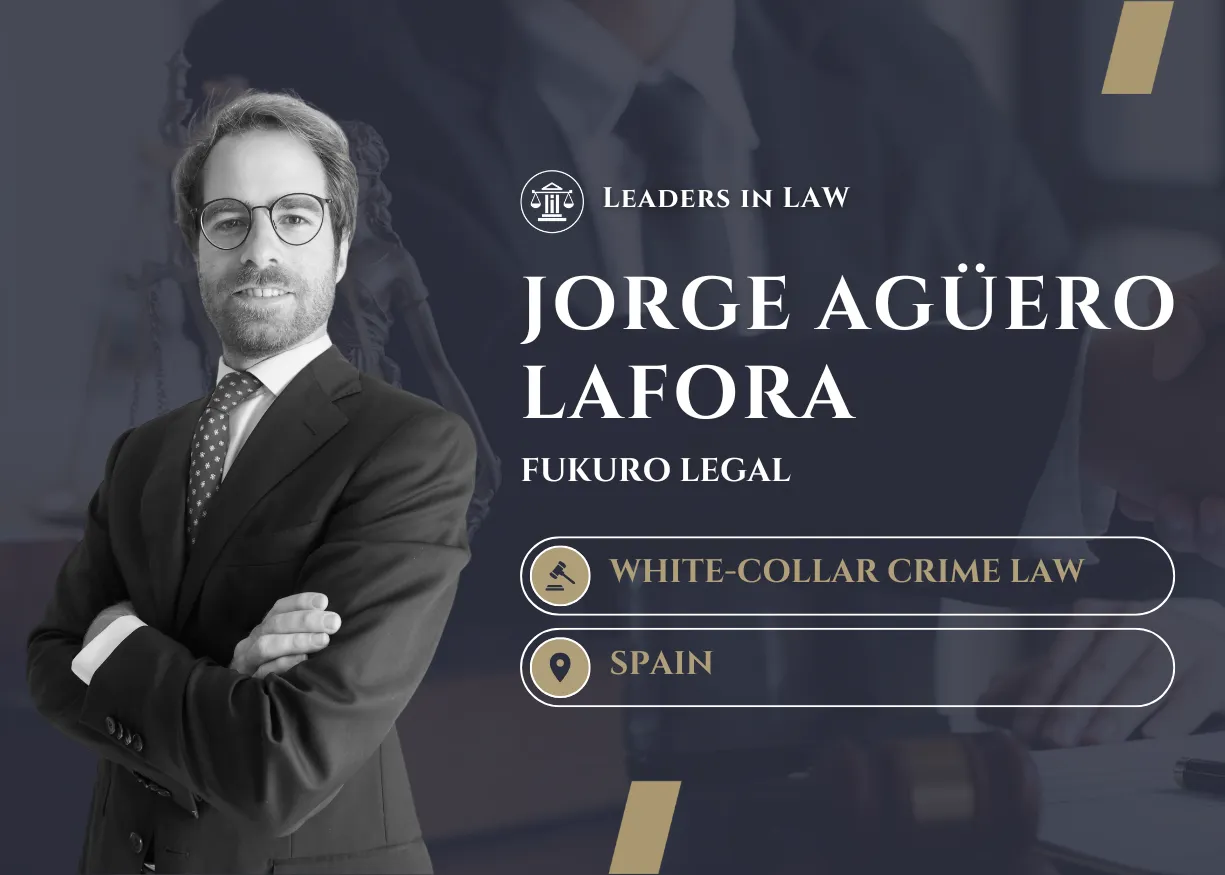
Jorge Agüero Lafora, managing partner at Fukuro Legal, named Spain’s exclusive White Collar Crime expert by Leaders in Law.
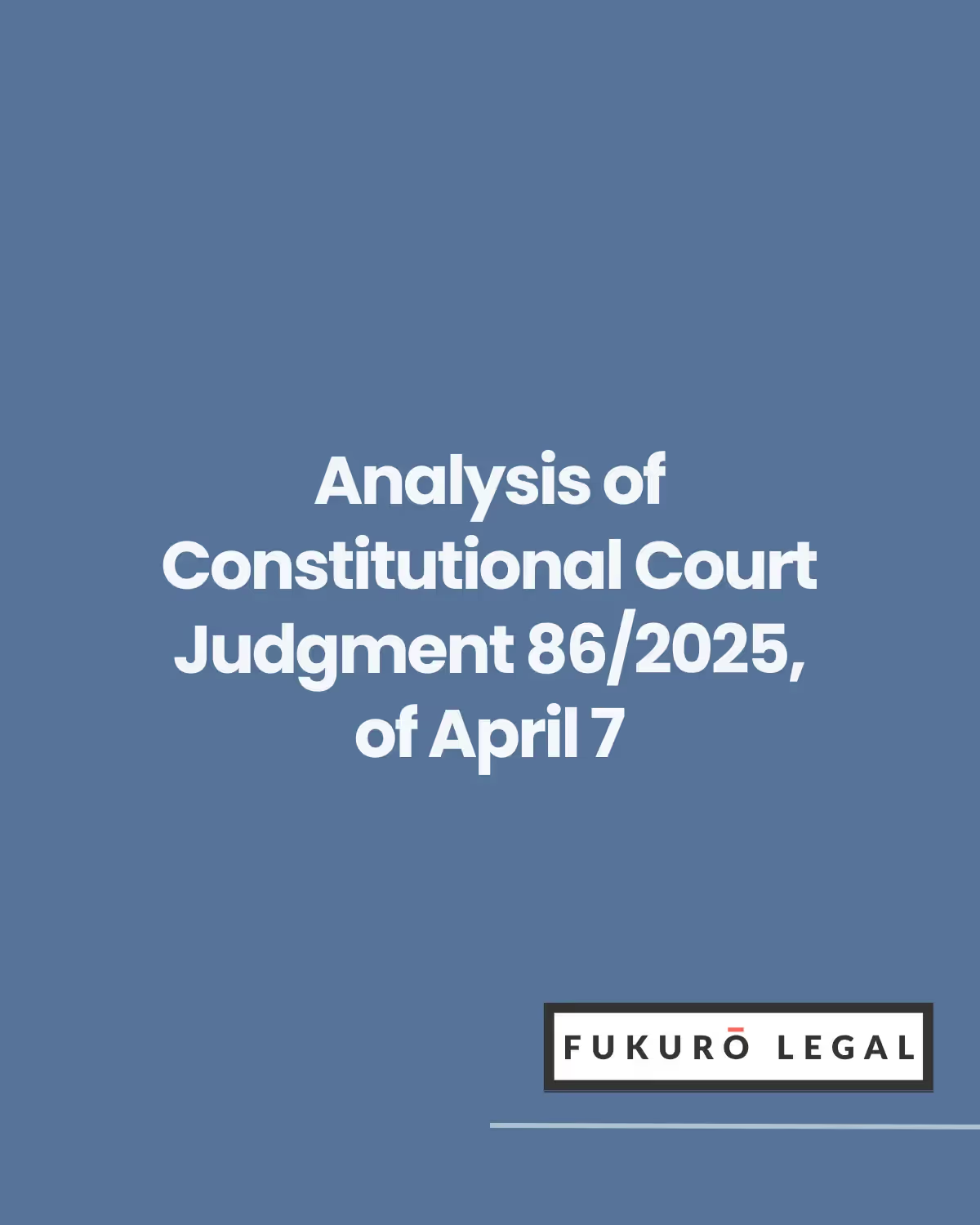
Constitutional Court 86/2025 finds detention without hearing violates personal liberty, affirming Article 17 and habeas corpus rights
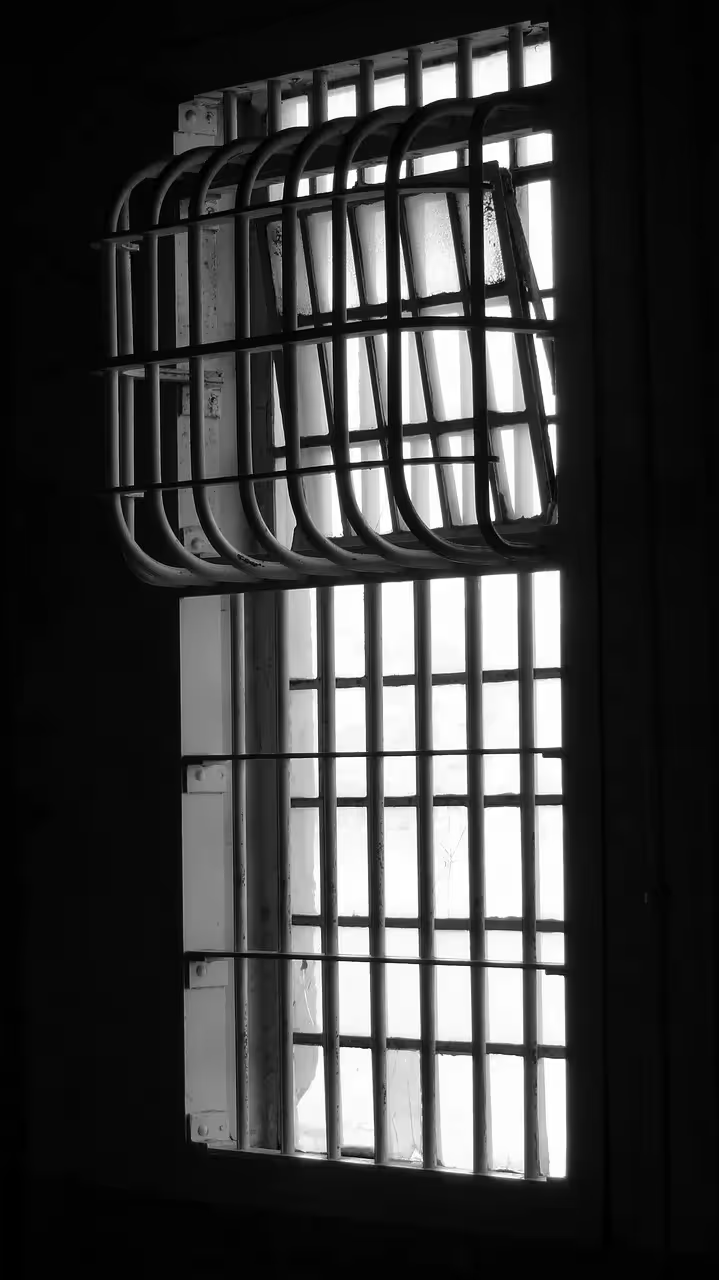
this blog post breaks down the complexities of warrants under Spanish law, making the topic accessible to legal professionals, students, and curious read

Spain’s prisons blend discipline and rehabilitation, offering structured routines, education, and programs to reduce recidivism and support reintegration.
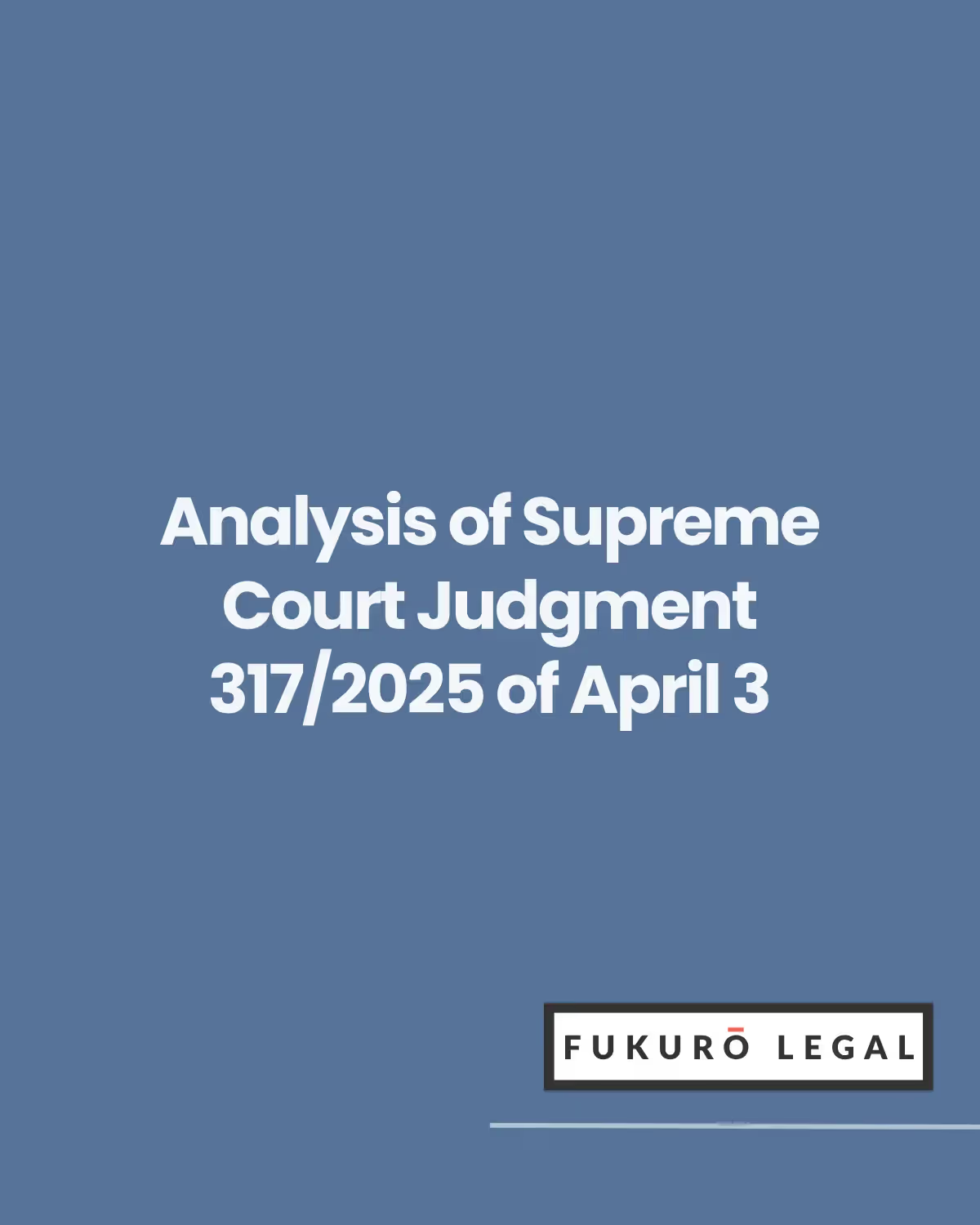
Supreme Court 317/2025 clarifies procedural actions outside legal terms are not void unless defense rights are substantially harmed.

Overview of Spain’s National High Court, its nationwide jurisdiction, and role in major and complex criminal cases.

VAT carousel fraud is a complex EU tax evasion scheme using fake companies and simulated cross-border transactions to evade taxes.

FukuroLegal attended a session on US expat financial planning in Spain, offering tips on taxes, transfers, and managing cross-border finances.

The National Court closed an extradition case on April 3, 2025 , a new success achieved by our criminal defense team.

Reformatio in peius protects appellants in Spain, preventing appeals from worsening outcomes and ensuring fair, predictable criminal proceedings.

Suspect an Interpol Red Notice? Learn how to cancel it, know your rights, and get expert international criminal law help from Fukuro Legal.

LECrim Articles 588‑588 octies regulate tech investigation, balancing crime prosecution with protection of fundamental rights and privacy.

JITs, EIO, and Eurojust enhance EU criminal cooperation, replacing letters rogatory and enabling efficient transnational investigations.

Facing tax fraud charges in Spain? Unpaid taxes over €120,000 may lead to criminal prosecution. Expert defense for foreigners, expats, and digital nomads.
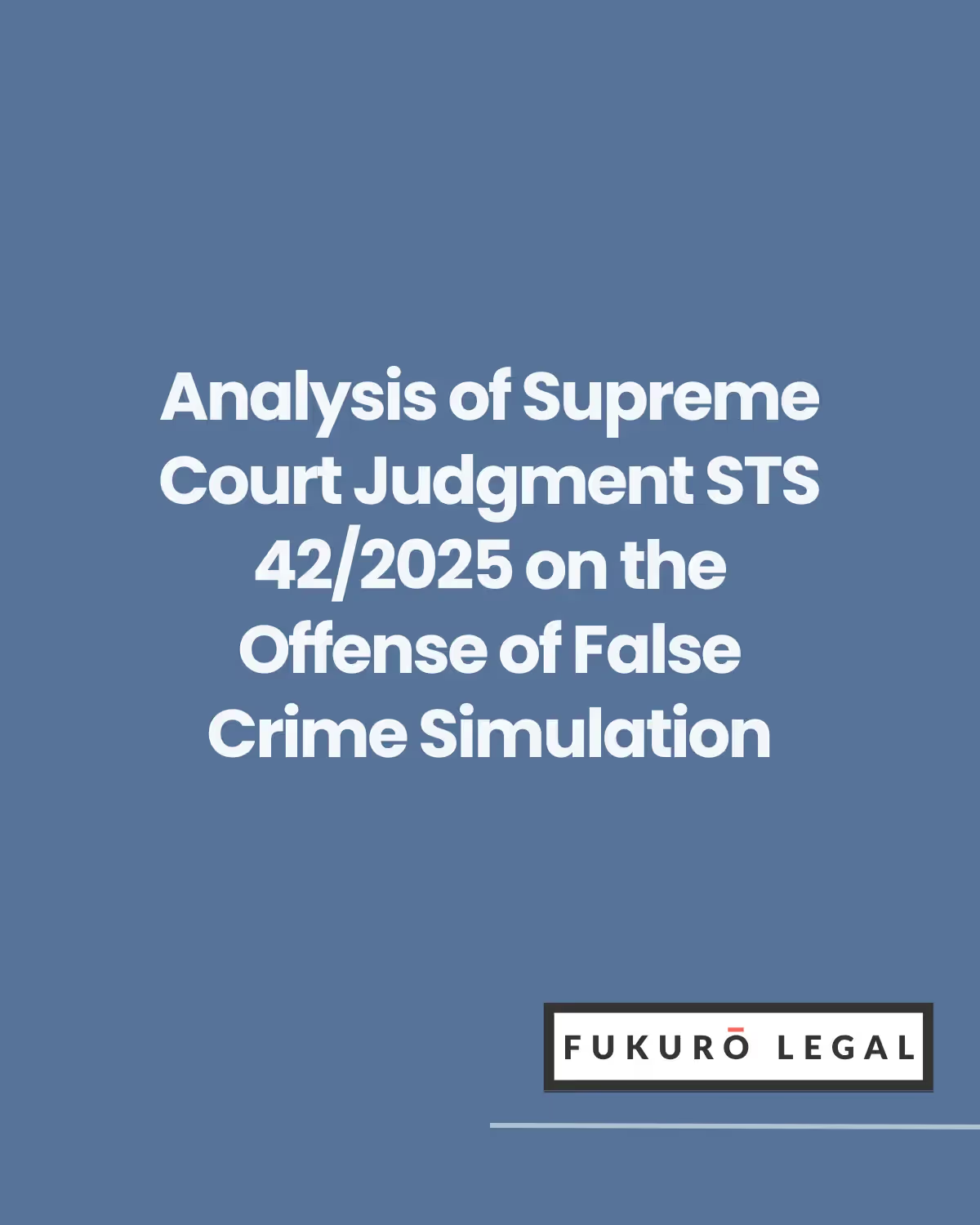
Supreme Court STS 42/2025 rules false crime reports without judicial impact are not criminal, protecting proper administration of justice

At FukuroLegal, we won the revocation of our client’s pretrial detention in a case alleging her involvement in her granddaughter’s abduction.

Appeals review manifest errors in evidence assessment; they cannot re-examine facts or worsen the appellant’s position, ensuring legal certainty.
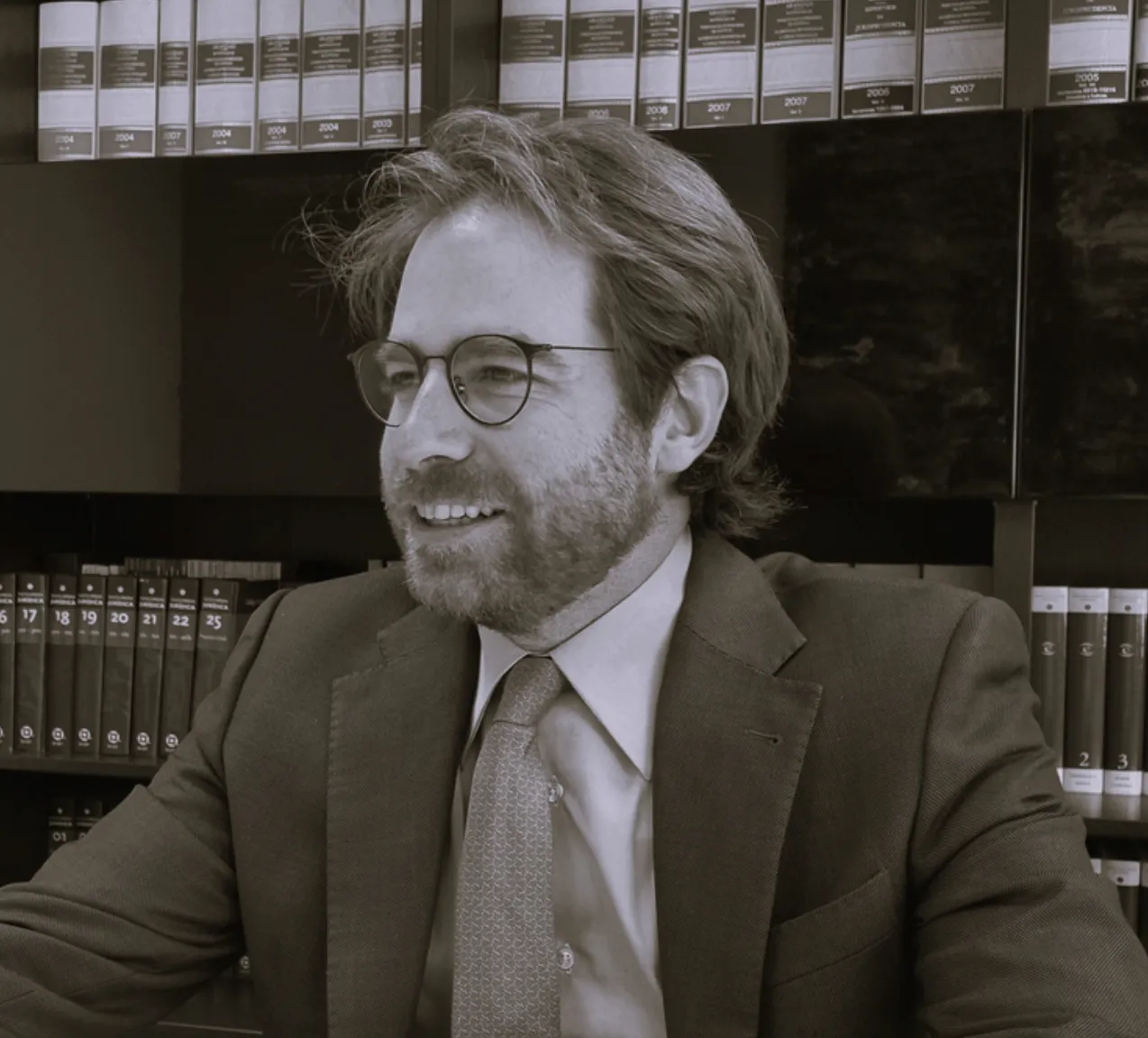
Lawyerpress interviews Jorge Agüero Lafora on FukuroLegal’s growth and international focus in criminal law and client defense strategies.

Cybercrime poses growing risks in a digital world. Learn its types and prevention to safeguard individuals and institutions.
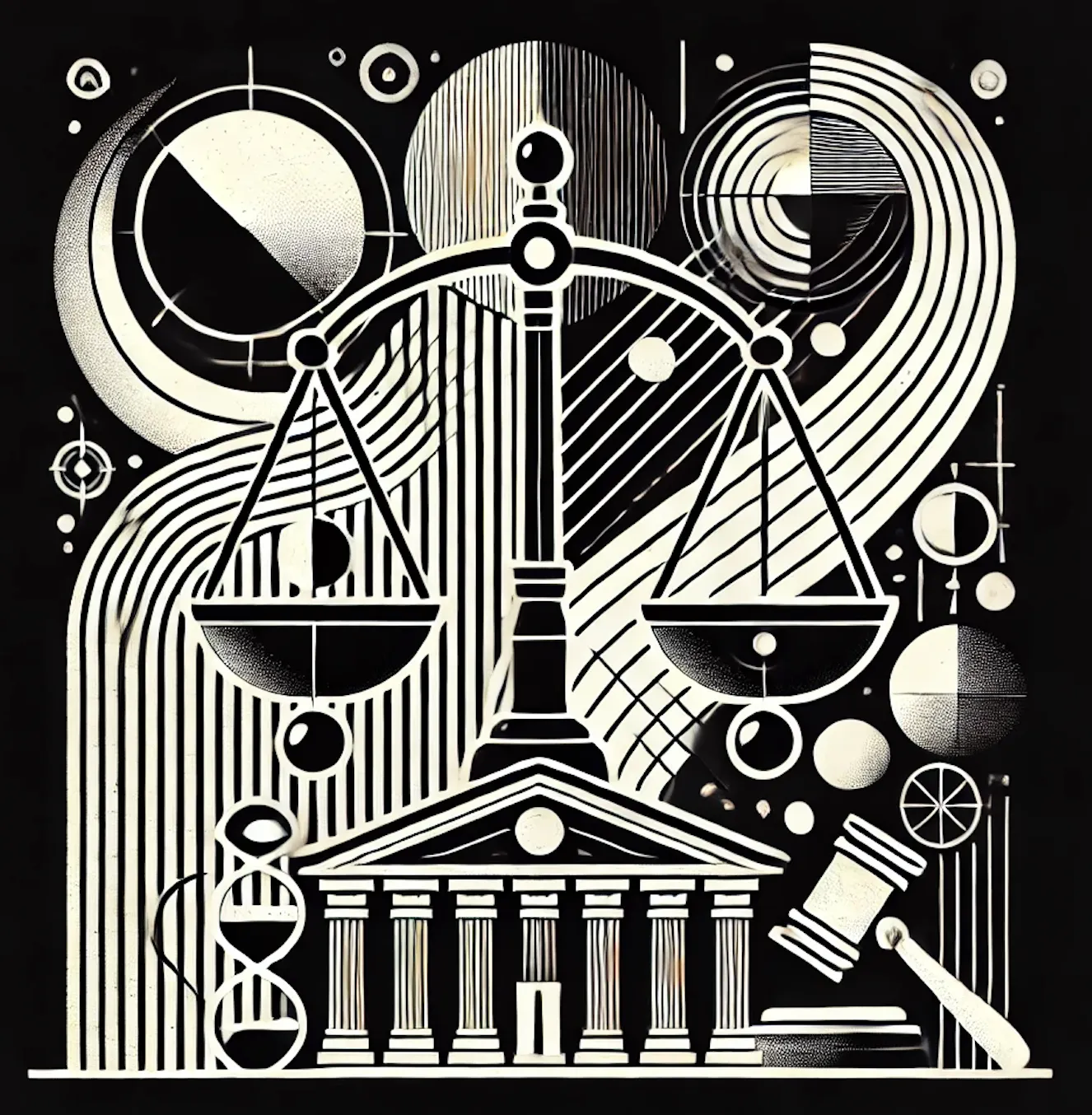
Fukuro Legal secured release from pre-trial detention in Spain for two EAW extradited defendants, highlighting expert international defense.
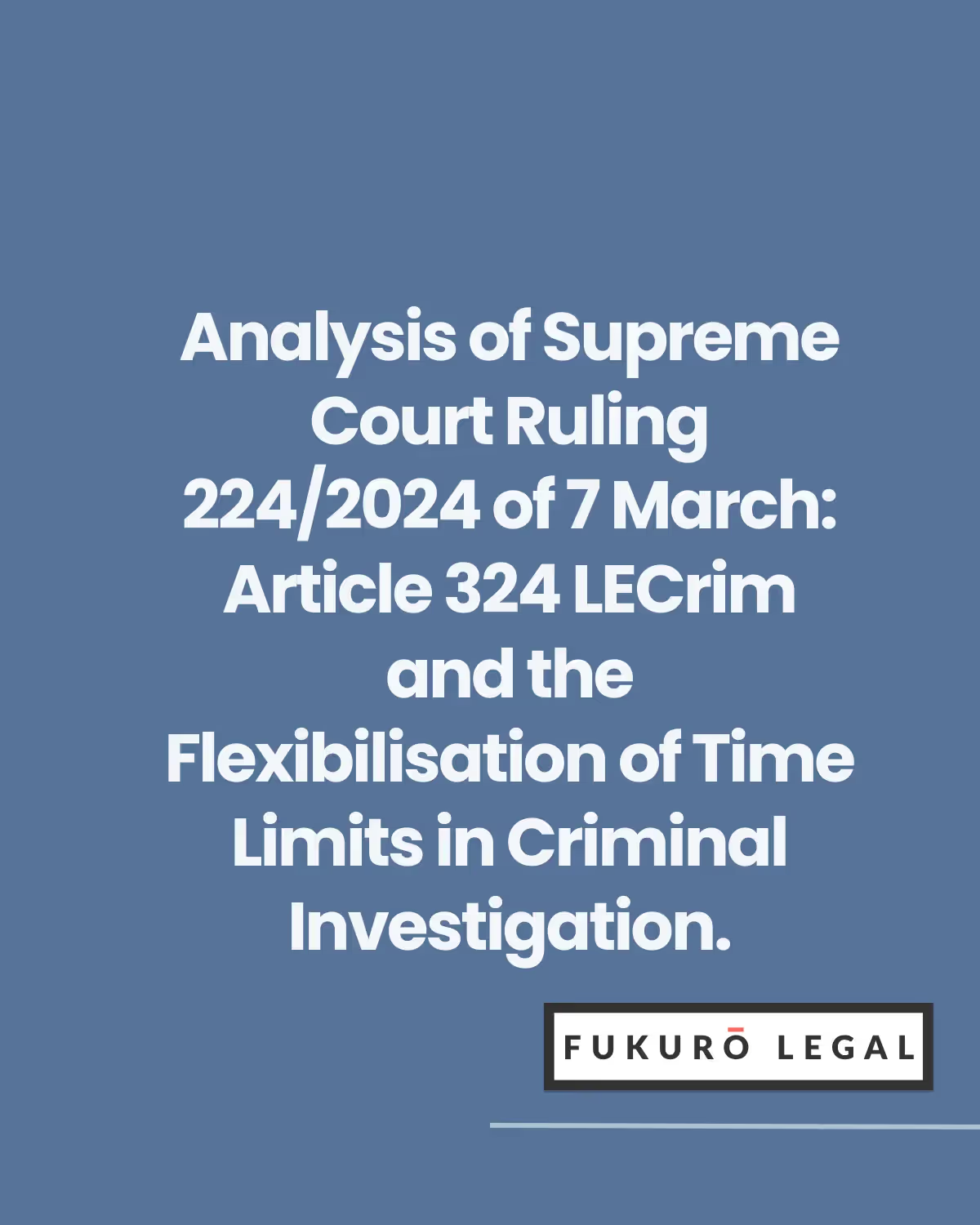
STS 1046/2024 interprets Article 324 CPC, introducing flexibility in investigation deadlines while safeguarding fundamental rights.

Sentence merger ensures proportionality when enforcing multiple penalties; the article analyzes its regulation, practice, and key aspects under CP and LECr
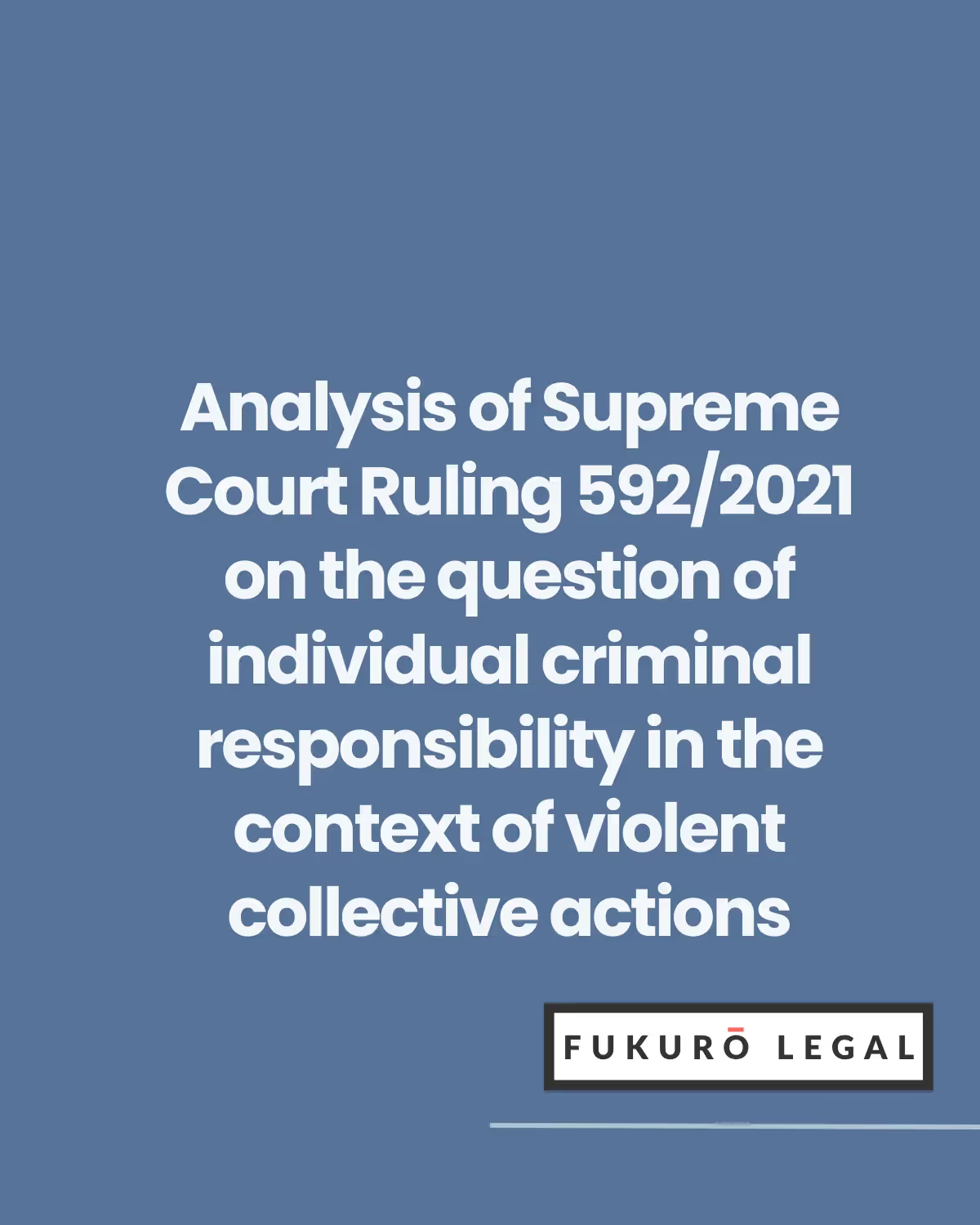
Supreme Court STS 592/2021 addresses individual liability in violent group acts, confirming co-responsibility despite unclear direct causation.
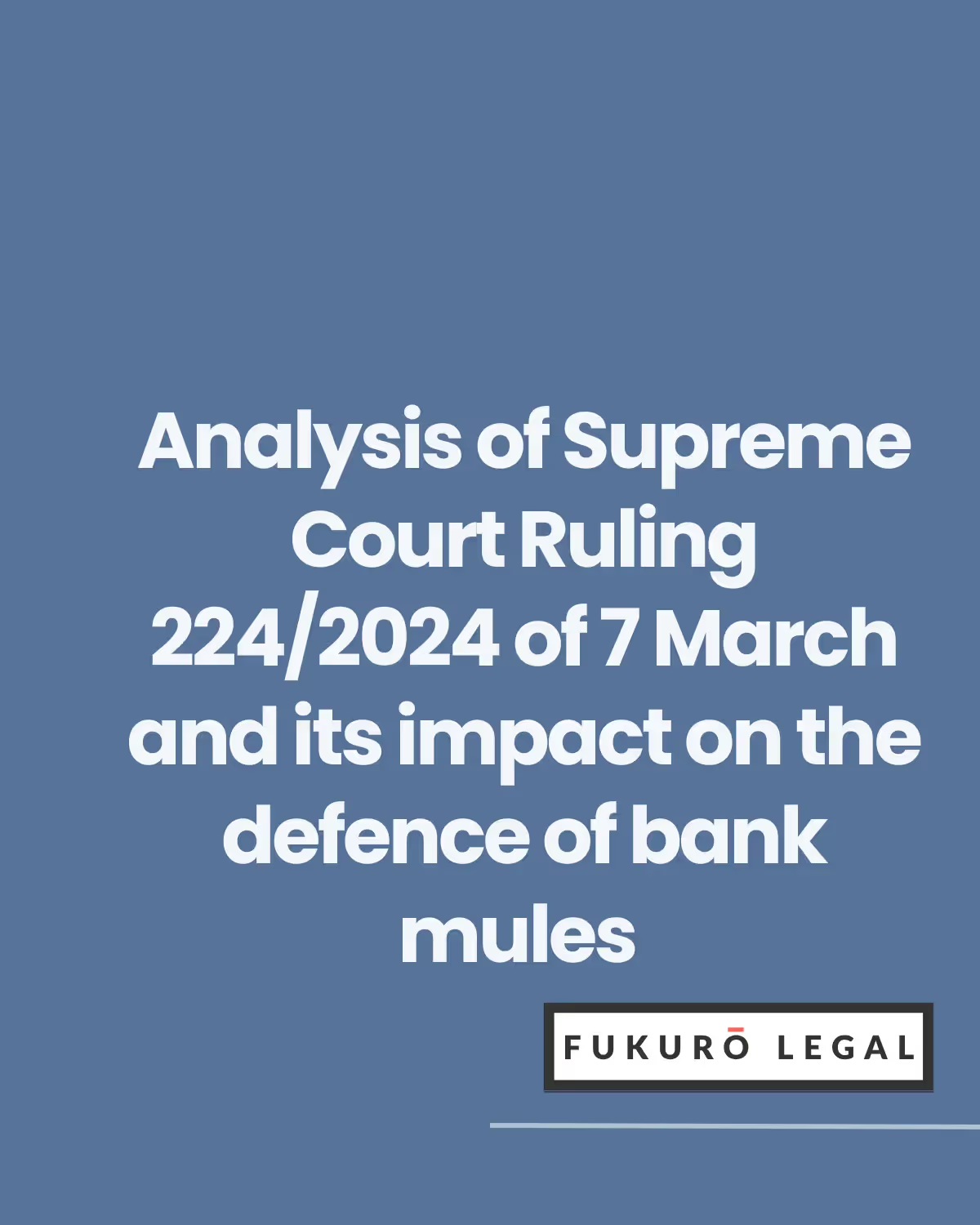
Supreme Court Ruling 224/2024 sets key criteria for bank mule cases, aiding defenses in money laundering and fraud without direct intent
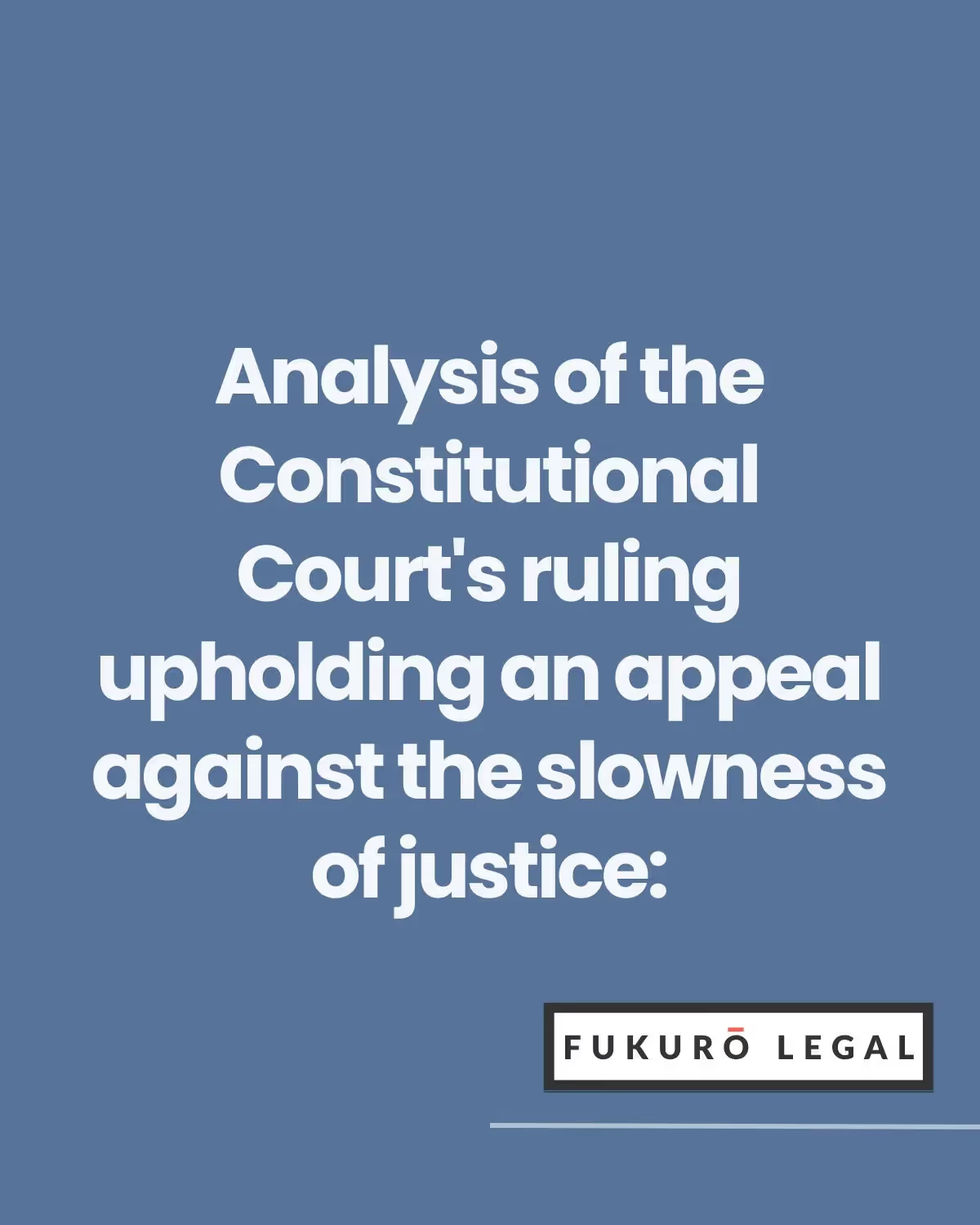
Constitutional Court ruling affirms the right to a trial without undue delay, enabling citizens to claim compensation for judicial inefficiency.

Supreme Court 782/2024 rules the defense has no absolute right to testify last; the accused keeps the final word, preserving equality of arms.
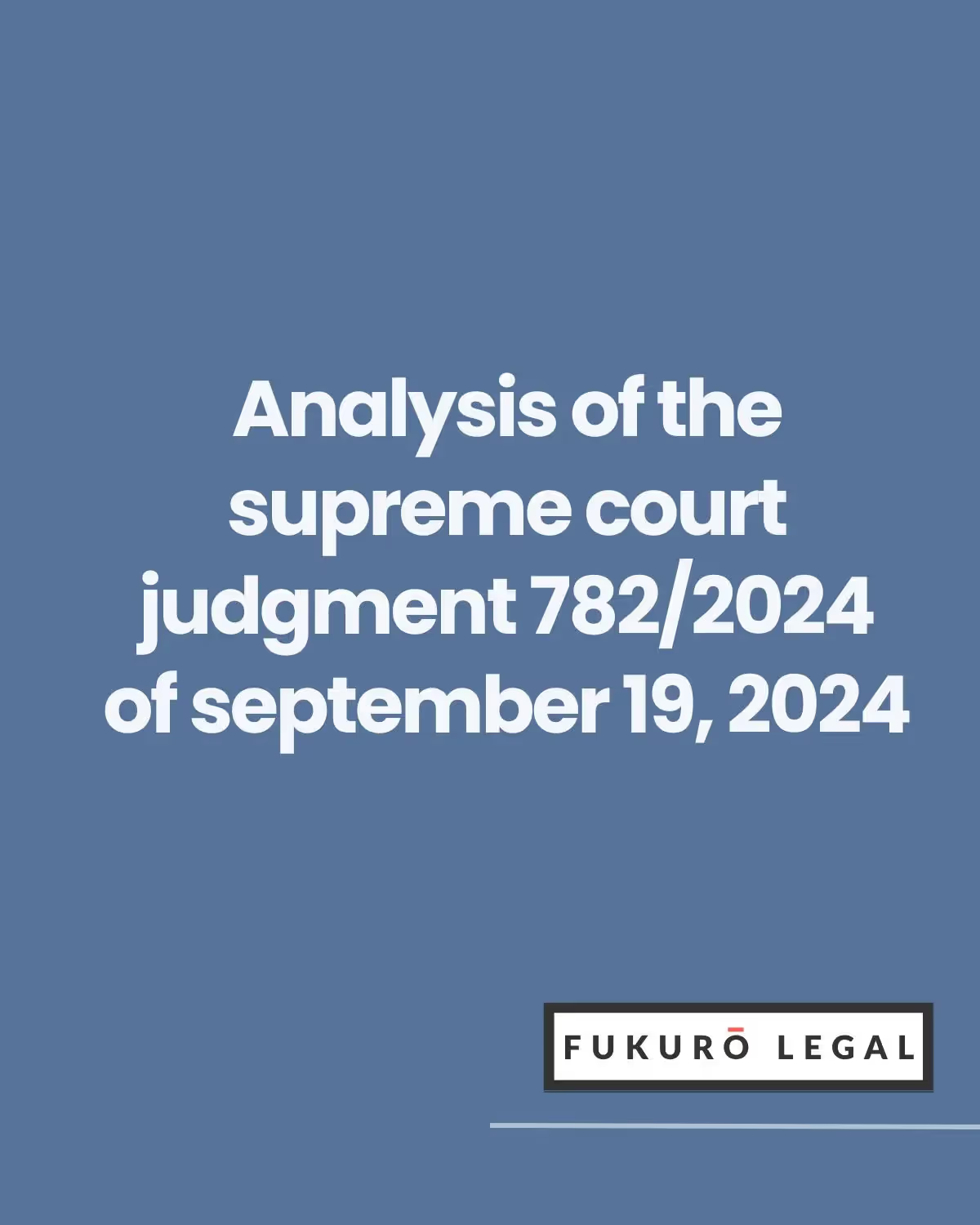
Supreme Court ruling clarifies that testifying last is not an absolute right under Art. 701 LECrim but defence rights remain safeguarded
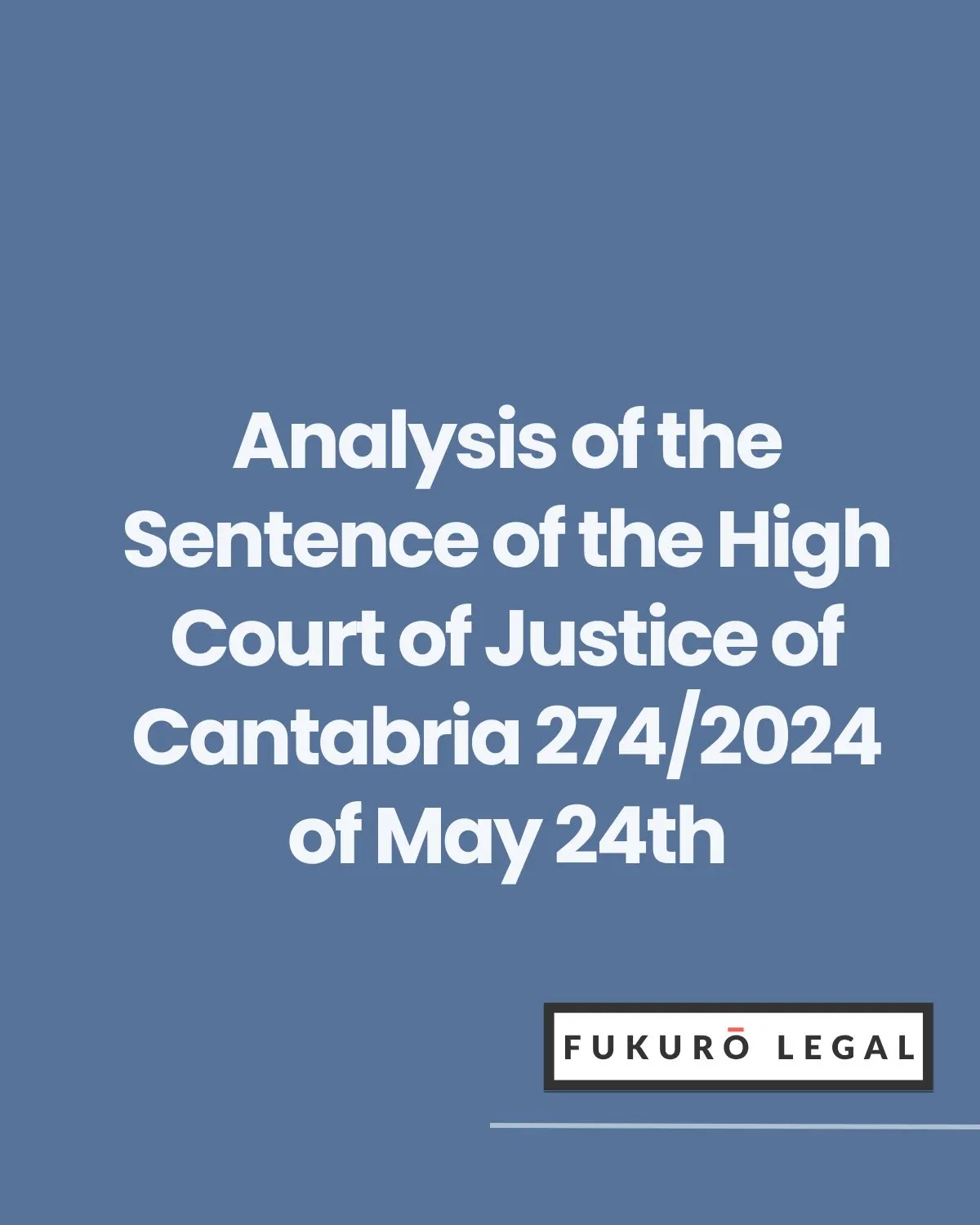
Cantabria High Court confirms prison terms in multiple sexual assault case, addressing perpetration, cooperation, and omissive complicity.

Supreme Court ruling analyses Spanish courts’ jurisdiction in international child abduction, outlining national and EU legal criteria.
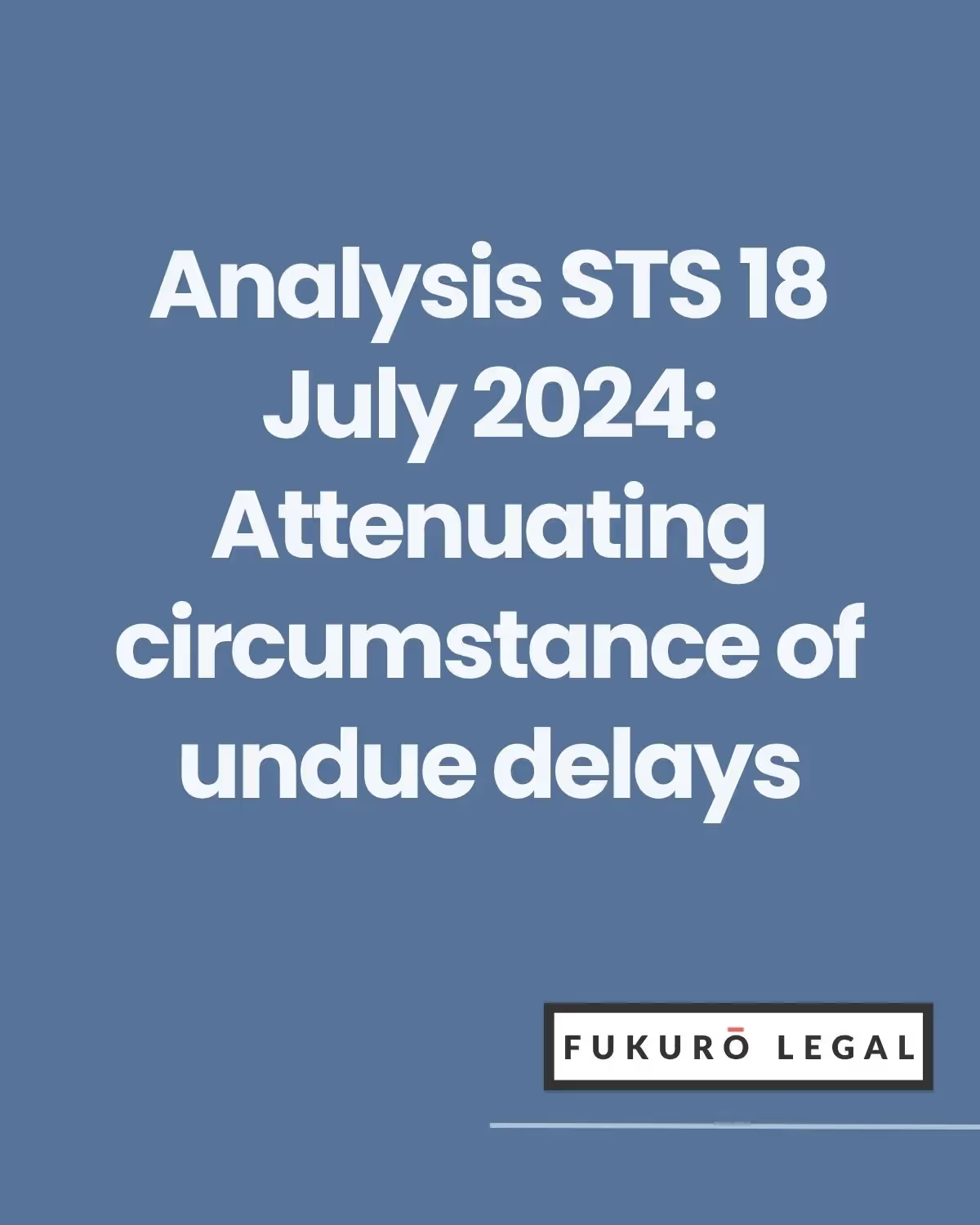
Supreme Court ruling 18 July 2024 analyses undue delay as mitigation in continuous fraud, rejecting its high qualification due to case complexity.

Article 324 sets limits on Spanish criminal investigations, balancing procedural efficiency with fundamental rights and preventing indefinite delays.

In criminal law, the presumption of innocence requires prosecution to prove guilt; STC 3308-2020 bars cassation convictions without direct evidence review

Jorge Agüero Lafora attended the ECBA Autumn Conference, reinforcing FukuroLegal’s expertise in European criminal law and international practice.

Active extradition in Spain explained: legal framework, Spain-Thailand treaty, and cases like Daniel Sancho and Artur Segarra.

Private-sector corruption (Art. 286 bis CP) punishes unlawful gains undermining loyalty and transparency by executives, employees, or collaborators.

Art. 18.2 SC guarantees home inviolability; police entry without warrant or flagrant crime is illegal, confirmed by Madrid High Court 2021

What is "poisonous tree" - It's a fundamental pillar in the legal field, establishing that any evidence obtained unlawfully must be considered tainted.

Know your rights in police custody: stay calm, request a lawyer, cooperate within limits, and seek legal advice for your situation and country.

Habeas corpus in Spain ensures detainees’ liberty, requiring judicial review to prevent unlawful detention and protect fundamental rights.

Detention in Spain is strictly regulated, ensuring access to information, legal assistance, and fair treatment; violations may render it illegal.

EAW ensures fair extradition in the EU, with refusal grounds protecting rights, CJEU safeguards, and strict deadlines to uphold justice.

Extradition in Spain requires expert legal guidance to protect rights, ensure fair hearings, and navigate EU arrest warrant rules.

SC Order 6664/2024 clarifies territorial jurisdiction in computer fraud, guiding courts on handling ambiguities per Article 14.2 LECrim

Judgment 3370/2024 clarifies Article 20.4 PC, providing a structured framework for assessing self-defense claims in criminal law.

Supreme Court 27 June clarifies when standard police baton use by State Security Forces is lawful and not aggravated assault (Art. 148.1 CP).

If arrested in Spain, know your rights, stay calm, get a lawyer, contact your embassy, and cooperate to ensure a fair legal process.

Criminal defense lawyer in your language: clear communication, strong defense, and understanding of your culture for better legal outcomes.

Extradition in Spain is complex; understand laws, procedures, and key cases to protect rights and navigate international criminal cooperation.

Sexual assault attorneys guide survivors, protect rights, handle cases sensitively, and provide support to secure justice and the best outcome.

Expert defense in extradition cases from Spain. Guidance on treaties, human rights, and legal remedies to protect individuals against surrender.

Spain’s prison system balances public safety with rehabilitation, ensuring inmates’ rights and accountability under Royal Decree 190/1996.

Spain's criminal law: trends and patterns revealed through key statistics, highlighting shifts in crime types and regional differences.

Analysis of current trends in criminal litigation in Spain, based on recent statistics and specialized studies in the dynamic legal landscape.

Explore Spain’s legal reforms tackling crime, domestic violence, and cybercrime, shaping modern criminal justice and human rights protection.

Spain’s 1985 Passive Extradition Law sets rules, ensures reciprocity, safeguards rights, and allows appeals up to the Constitutional Court.
.webp)
Expert defense in Spanish criminal and extradition cases. Protect your rights with FukuroLegal’s skilled legal team.

Explore Spain’s penitentiary system under Royal Decree 190/1996, ensuring inmate rights, rehabilitation, and fair prison surveillance.

Criminal defense strategies vary by case, from denial to plea deals, aiming to protect defendants’ rights and secure a fair trial.

Analysis of seven defense strategies in Spanish criminal proceedings ensuring fair trials and protection of the accused’s rights.

Fukuro Legal offers English-speaking criminal law services in Spain, protecting clients’ rights with tailored legal strategies.

Law 35/2015 regulates compensation for traffic accident damages in Spain, ensuring fair repair based on injury severity and individual circumstances.

What to do if accused of rape: rights in detention, dealing with police, contacting the victim, and hiring an experienced defense lawyer

Law 2/2023 implements the EU Whistleblower Directive in Spain, protecting informants from retaliation and requiring internal reporting systems

This article details prison communication methods—visits, calls, letters, professional meetings—and their rules, requirements, and time limits

The EAW sets mandatory and optional refusal grounds, ensuring respect for fundamental rights in European surrender procedures.

Corporate liability, Avoid criminal liability by taking preventive measures and collaborating in investigations.

Article on consent in sexual assault under Organic Law 10/2022 analyses whether the reform improves victims’ credibility protection

Jorge Agüero Lafora defended a terrorist murder suspect, arguing no connection to Spain and violation of the principle of legality.

In Spain, companies may face criminal liability for employee crimes benefiting the firm; compliance programs and legal guidance help prevent risk.

Spain strengthens whistleblower protection in public and private sectors, mandates internal channels and penalizes retaliation

Arrested in Spain? Know your rights: silence, counsel, consular aid, and prompt judicial review. Criminal lawyer 24/7.
Recommended criminal law firm
Our team of experienced attorneys is dedicated to safeguarding your interests. We offer strategic legal advice and defense in complex cases on an international scale, ensuring confidentiality and a strong commitment to every client.

Contact Us
Contact our criminal defense attorneys. The firm offers immediate action in any emergency situation.
